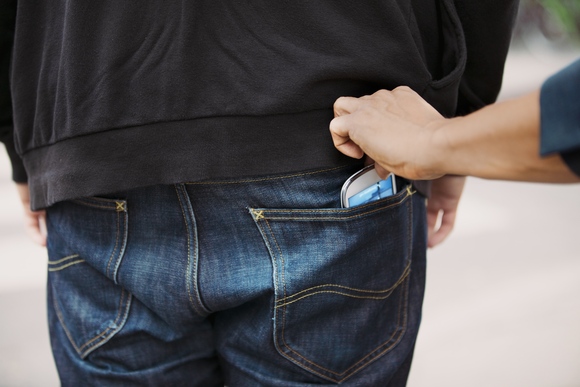August, 26, 2014

Governor Jerry Brown of California on Monday signed into law a measure that requires smartphones sold in California to include smarter antitheft technology, a feature that lawmakers hope will help reduce phone theft.
The bill, introduced by State Senator Mark Leno and sponsored by George Gascón, San Francisco’s district attorney, requires a so-called “kill switch” — which would render a smartphone useless after it was stolen — to be included on all smartphones sold in California starting in July 2015.
A kill switch is software that allows consumers to disable a phone after the device has been reported stolen and reactivate it only with a correct password or personal identification number. Proponents of the bill have argued that wide adoption of this type of antitheft technology would lead to a reduction in phone theft because it would make it more difficult for criminals to resell stolen phones.
“Our efforts will effectively wipe out the incentive to steal smartphones and curb this crime of convenience, which is fueling street crime and violence within our communities,” said Senator Leno, in a statement.
In May, Minnesota became the first state to require a kill switch on all smartphones sold there. But the California bill is unusual in that it requires manufacturers, like Apple, Samsung and Motorola Mobility, to ship smartphones with the anti-theft technology turned on by default.
In San Francisco, 2,400 cellphones were stolen last year, up 23 percent from 2012, according to the San Francisco police. Phone thefts also grew in New York and Washington last year. Overall, about 3.1 million devices were stolen in the United States in 2013, nearly double the 1.6 million that were stolen in 2012, according to Consumer Reports.
However, some data suggests that kill-switch technology is already helping deter smartphone theft. Apple’s iPhone has offered kill switch technology since September. In June, law enforcement statistics for several major cities saw a significant dip in thefts of Apple devices after Apple’s introduction of the antitheft feature. For example, comparing data in the six months before and after Apple released its anti-theft feature, police said iPhone robberies in San Francisco dropped 38 percent.
Supporters of a kill-switch law have faced resistance from CTIA, a trade organization for the wireless industry. The group has argued that creating laws specific to certain states would stifle technology innovation. It reiterated this argument again on Monday in reaction to Governor Brown’s decision to sign the bill.
“Uniformity in the wireless industry created tremendous benefits for wireless consumers, including lower costs and phenomenal innovation,” said Jamie Hastings, vice president of external and state affairs for CTIA, in a statement. “State by state technology mandates, such as this one, stifle those benefits and are detrimental to wireless consumers.”
Mr. Gascón, San Francisco’s district attorney, said in a statement that cellphone owners can “breathe a sigh of relief.”
“Soon, stealing a smartphone won’t be worth the trouble, and these violent street crimes will be a thing of the past,” he said in a statement. “The devices we use every day will no longer make us targets for violent criminals.”
nytimes
Video Story